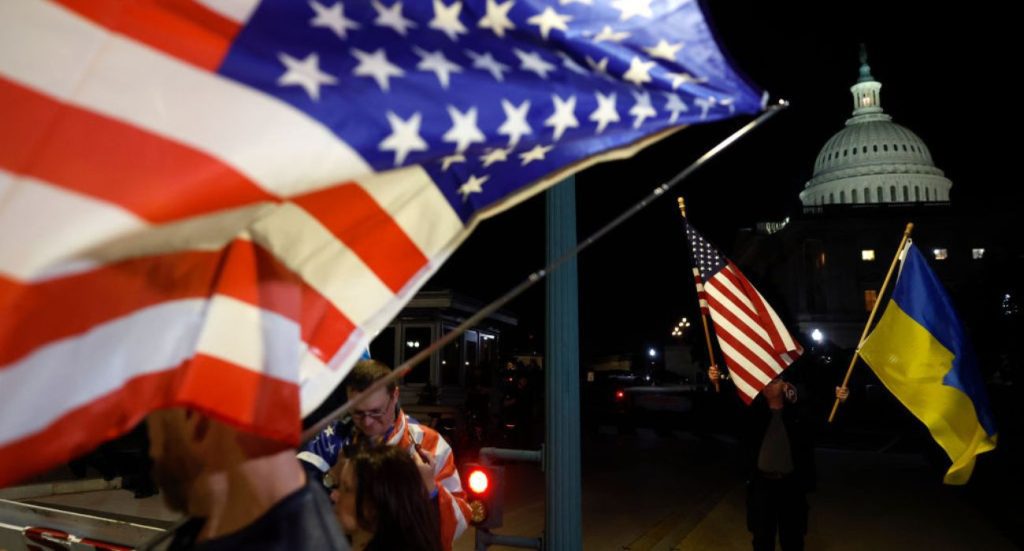After a long struggle to overcome opposition mostly from House Republicans, President Joe Biden signed into law on Wednesday a foreign aid package that will allocate billions of taxpayer money for the defense of Ukraine, Israel, and Taiwan and may compel China to divest from TikTok.
The bill that Biden signed (HR 815) went through the House as four separate bills, as covered by The Dallas Express. House Speaker Mike Johnson, a Republican, chose this approach to overcome objections from the right wing of his own party, which had serious concerns about sending more aid to Ukraine. However, he still needed the support of almost all the Democrats as most Republican members voted against the bill for supplementary funding for Ukraine.
Now that the bill of supplementary appropriations has been made law, here is a breakdown of not only the $61 billion for Ukraine that was the subject of much debate and disagreements but also the intended use of the other $30 billion in expenses.
Ukraine
The package assigns nearly $28 billion for Ukraine’s overall defense. About $13.8 billion of that will be allocated to the Department of Defense for the acquisition of new weapons.
“This legislation provides much-needed funding to protect America’s future by replenishing U.S. stocks and enhancing production capacity domestically,” said Eric Fanning, the president and CEO of Aerospace Industries Association, said in response to the bill, according to Defense One.
“We anticipate that this bipartisan backing for the American industrial base will persist throughout the fiscal year 2025 appropriations process,” he added.
It also establishes an Economic Support Fund of almost $7.9 billion to bolster Ukraine’s general budget.
Israel
The bill allocates $4 billion “for the purchase of the Iron Dome and David’s Sling defense systems to counter short-range rocket threats” and an additional $1.2 billion for the Iron Beam, which also counters short-range rockets. It also includes a $3.5 billion financing program for the acquisition of advanced weapons systems.
It also includes a funding prohibition against UNRWA, the United Nations agency that assists Palestinian refugees, after the Israeli government accused twelve of its employees for alleged involvement in the October 7 attack by Gaza-based militants that resulted in an estimated 1,200 Israeli casualties.
“None of the funds appropriated or otherwise made available by this division and previous Acts making appropriations for the Department of State, foreign operations, and related programs may be used for a contribution, grant, or other payment to the United Nations Relief and Works Agency, regardless of any other provision of law.”
Indo-Pacific (Taiwan)
For Taiwan and “foreign countries that have provided support to Taiwan at the request of the United States,” the bill designates $2 billion to fund the operation, maintenance, and acquisition of defense equipment.
TikTok
In a section called the “Protecting Americans from Foreign Adversary Controlled Applications Act,” the package focuses on TikTok and its Chinese owner ByteDance Ltd. as entities controlled by foreign adversaries.
These rules have a 270-day waiting period from when the law is passed before they take effect, as DX reported. ByteDance has to sell off TikTok within that time, or the app will no longer be able to access the U.S. market. ByteDance has said it plans to legally challenge the law.



